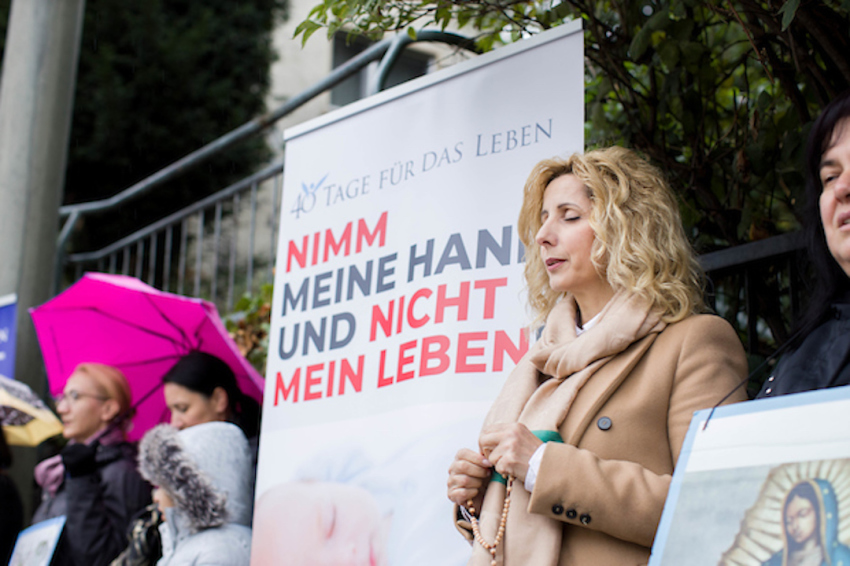German court agrees to hear appeal over prayer vigil ban near Planned Parenthood affiliate

An appeals court in Germany has announced it will hear a challenge brought by the leader of a prayer initiative against a ban on silent prayer gatherings near organizations that promote abortion. The restrictions had been upheld by a lower court some six months ago.
The Administrative Court of Appeals (Verwaltungsgerichtshof) in Mannheim on Wednesday called for the facts of the case filed by Pavica Vojnović, the leader of the 40 Days for Life group in Pforzheim, to be established as required by the rule of law, said the faith-based legal advocacy group Alliance Defending Freedom International, which is supporting the challenge.
In 2019, the local chapter of the global pro-life organization was banned from holding prayer vigils near the Pro Familia in Pforzheim, the German affiliate of the International Planned Parenthood Federation, a multi-billion dollar abortion organization.
The prayer vigils were peaceful throughout, the group says. “When monitored by the police at the request of Pro Familia, no violations of any law were found; and yet, the management of the center requested that the vigil be moved some distance away or banned altogether.”
40 Days for Life challenged the court’s ban since it restricts their right to freedom of religion, assembly and speech, according to ADF International. However, the German court dismissed it on May 12, so the prayer vigils remained prohibited.
After the announcement by the appeals court, a senior counsel for ADF International, Felix Böllmann, said it was encouraging that “the court sees merit in the case.”
“Hopefully, it will grasp this opportunity to uphold freedom of expression, assembly and religion,” Böllmann said. “In dismissing the case, the lower court failed to affirm these freedoms which are the foundation of every free and fair democracy. By prohibiting even silent prayer near an abortion organization, the Pforzheim authorities have gone beyond what could be considered reasonable or proportionate.”
While not all agree with Pavica’s views on the sanctity of life, “everyone can support the importance of the fundamental rights to freedom of expression, religion and assembly,” he added.
“Every life is valuable and deserves protection,” said Pavica Vojnović, who led 40-day vigils twice a year with around 20 people outside the pre-abortion advisory facility to pray for the women considering abortion and their pre-born children.
“I am shocked that we are being prevented from supporting vulnerable women and their unborn children in prayer. It’s discouraging to hear that silent prayer vigils in a public place are restricted by local authorities. Our society must offer better support to mothers in difficult situations.”
She added that her challenge is not just about her group. “It’s about whether prayer-free zones are lawful, or whether one is allowed to represent different opinions in the public square. That is why we will continue fighting for this freedom.”
The issue of “buffer zones” near abortion organizations is also a concern in the United States.
In January, the U.S. Supreme Court rejected a pro-life group’s challenge to a 15-foot buffer zone from abortion clinic entrances in Pittsburgh, Pennsylvania.
Censorship of pro-life organizations is also on the rise across Europe, from banned speech zones to restrictions to speech on college campuses.



























